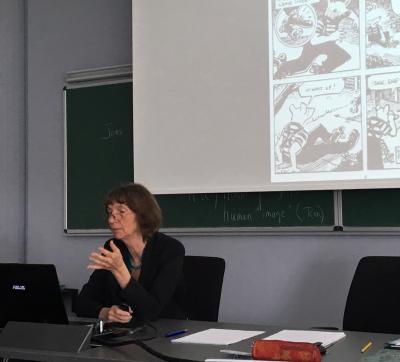|
|
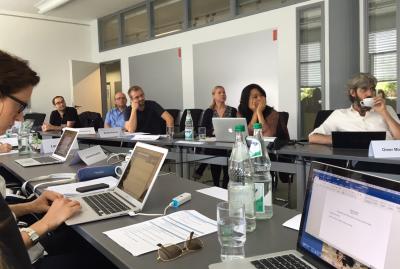 |
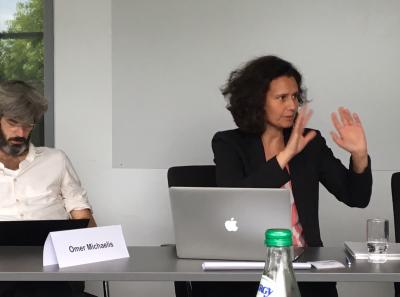 |
 |
 |
In the second session, Aleida Assmann presented William Shakespeare’s liminal anthropology through a reading of key moments in his plays. She introduced Shakespeare’s new articulation of human dignity, shifting from its sense as a royal status to a more precarious sense intimately related to human vulnerability, and which involves responsiveness and a confirmation of human solidarity. This led the fellows into a discussion on the different roles played by the arts in forerunning and fostering the notion of human dignity.
 |
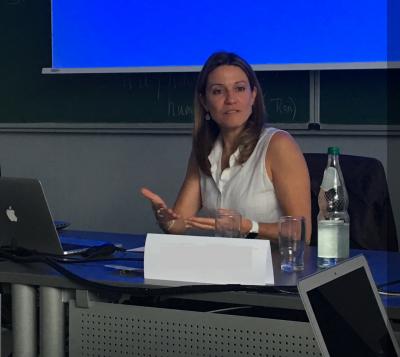 |
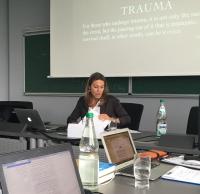 |
Stephanie Arel presented different disciplinary perspectives on trauma, its various manifestations, and the structure of the traumatic experience. Stephanie examined the far-reaching consequences of irresponsiveness or delayed response to trauma, the shame that may overwhelm survivors of trauma, and the different modalities of attending to the shattered selves and fragmentary accounts of traumatized victims. Her presentation yielded a discussion about the loss of temporal cohesion as the aftermath of trauma along with the possible methods for a reinstallation of meaningfulness after a traumatic event.


